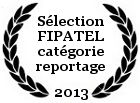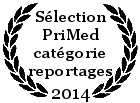Tracked down: investigating digital arms dealers
The Enquiry
The Arab revolutions owe a lot to the Internet. They are the first horizontal wave of insurrections without a true leader where information spread at great speed on networks and social media. Powers’ abuses were systematically recorded by mobile phones and broadcasted on the web, resulting in a strong international reaction and giving western democracies even less excuses to sit back and do nothing.
Before there had been a state of siege. Any gathering of more than three people was banned.
Today’s rebels remain sealed in at home and use their computers to plot revolution. The authorities have to resort to different means to suppress these dissidents of a new kind. Over recent years some dictatorships have equipped themselves with methods of surveillance that track communications, geo-localize and filter out content. All this technology is provided by western companies.
On the one hand, the West undeniably helped the struggle for freedom in some Arab countries. Like in Libya where NATO airstrikes and French diplomacy played a major role on the Gaddafi’s fall.
And yet in Syria it’s an American company that has provided Assad’s regime with electronic surveillance technology. And in Libya right to the very end of the Gaddafi’s dictatorship, French technology was being used to spy on the opposition.
When the authorities take full control of the Internet, like in Syria, the so-called “White Hat” French, American and Swedish hackers help the insurrection. From their own homes, of course.
Telecomix website geeks hence created new links and routes when communication and content were blocked by the Syrian government.
This investigation deals with four main protagonists:
– young revolutionists who used the Internet to organize themselves
– dictatorship’s police who were ordered to monitor them
– western companies that provided them with the technology
– western hackers who set up alternative communications
How do you say ‘Big Brother’ in Arabic?
With the fall of the authoritarian Arab regimes, we were able to visit the technical infrastructure in Libya, find witnesses and establish the methods that were used by the authorities there that allowed them to monitor the whole digital traffic in their country.
To ease western companies’ conscience, the most authoritarian and corrupt Arab dictatorships convinced them such powerful and sophisticated surveillance technology would be used against Islamic movements close to Al Qaeda…
Hackers without borders
Today Syrian authorities are monitoring or blocking the Internet. Just about everywhere on the planet hackers have decided to help the Syrian people. In France they work from home at night, in their spare time. They break through security measures and bypass traps set by the authorities.
The Syrian police had set up a way to control a key tool fror the rebels: Facebook. Without knowing, Internet users were directed to a fake Facebook site, merely designed to collect their passwords.
Hackers counter-stroke by launching alerts to warn the Syrian insurgents. They then set up ultra secure chat rooms, free digital zones. Today they are still fighting. Their frontline being their computers’ screens.
PREVIOUS BROADCASTS INCLUDE: CANAL + (France), MEDI 1 SAT (Morocco), TVI (Portugal), TVP (Poland), RED PIX (India), ODISEA (Spain), GLOBAL KANAL (Sweden), AUSTRALIA NETWORK, ORF III (Austria), TVE (Spain) AND VRT (Belgium)










